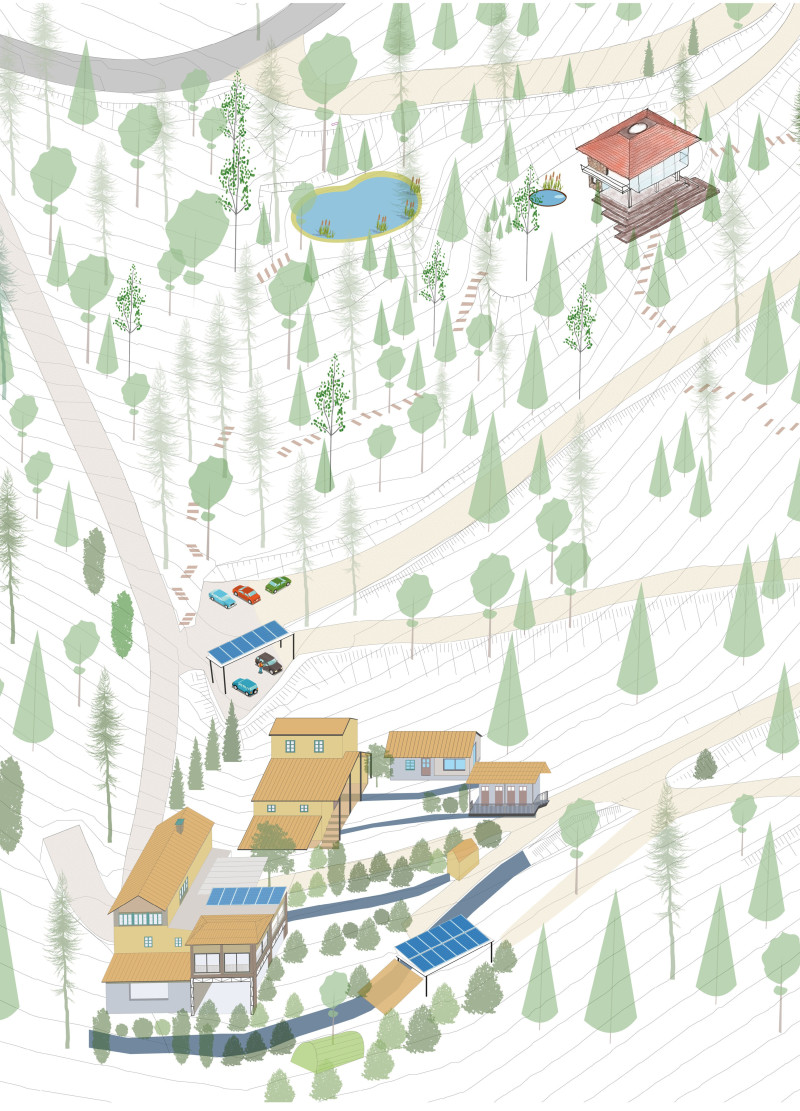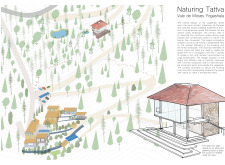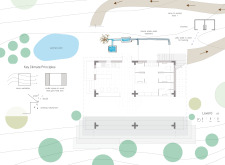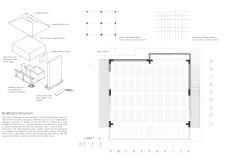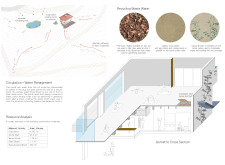5 key facts about this project
Naturing Tattva, located in Vale de Moses, Portugal, focuses on promoting community well-being through yoga retreats. The design encourages a deep connection with nature and offers open access to the outdoor landscape. The overall concept highlights a careful balance between the construction and its environment, reflecting local climate influences and the natural forms found in the region.
Materials and Structure
The structure incorporates stone, wood, and earth as primary materials. The stone envelope at the back forms an independent part of the building, providing insulation from the heat in summer and retaining warmth during colder months. This approach not only enhances comfort but also contributes to the building's overall sustainability.
Interior Environment
The upper level features a flexible open-plan layout that allows for a variety of activities related to yoga practice. Large glass panels at the front of the building create a strong visual connection with the landscape, filling the interior with natural light. The wide front steps also invite social gathering and contemplation, serving as a space for relaxation and connection among users.
Sustainable Practices
Passive environmental strategies are an essential aspect of the design. Cross-ventilation and buffer zones help maintain comfortable indoor temperatures throughout the seasons. A natural pond collects rainwater runoff, acting as both a resource and a cooling element for the surrounding air. Additionally, the use of greywater recycling systems shows a commitment to efficient water management and sustainability.
As the design continues to evolve, the stone facade is intended to support climbing plants, allowing nature to gradually reclaim the building. This detail emphasizes the connection between built spaces and the environment, showcasing a thoughtful approach to architectural design.


